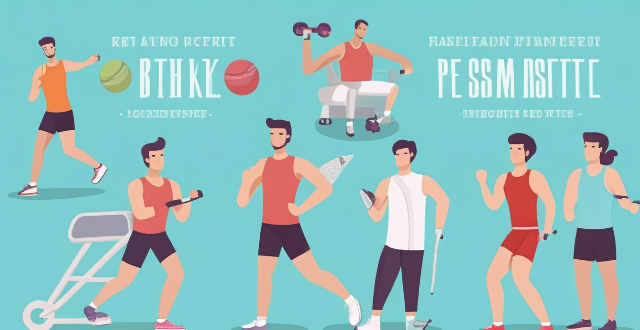The relationship between sports and improved mental well-being is evident in numerous studies, indicating that engaging in physical activities significantly contributes to an individual's overall psychological well-being. This connection can be analyzed from various angles, including physiological responses, social interactions, personal development, and the role of subjective class identity and health. Physiological responses to sports include endorphin release and stress reduction, while social interactions provide opportunities for teamwork and belongingness. Personal development through sports enhances self-esteem and discipline. The mediating roles of class identity and health also play a part in this relationship. Overall, sports participation positively affects individuals' subjective well-being through various mechanisms, enhancing their mental health and overall quality of life.

Is there a connection between sports and improved mental well-being?
The positive impact of sports on mental health is evident in numerous studies, suggesting that engaging in physical activities significantly contributes to an individual's overall psychological well-being. This relationship can be analyzed from various angles, including physiological responses, social interactions, personal development, and the role of subjective class identity and health.
Physiological Responses
Sports participation triggers a series of physiological reactions within the body that contribute to mental well-being:
- Endorphin Release: Engaging in physical activity promotes the release of endorphins, often referred to as "feel-good" hormones, which act as natural painkillers and mood elevators.
- Stress Reduction: Physical activities help reduce stress by lowering levels of the body's stress hormones, such as cortisol.
Social Interactions
Participating in sports provides opportunities for social interaction and community building:
- Teamwork and Belongingness: Team sports foster a sense of belonging and camaraderie among participants.
- Social Support: The sports community offers emotional and moral support, which is crucial for mental health.
Personal Development
Engaging in sports can enhance personal growth and self-esteem:
- Goal Achievement: Achieving fitness or skill-related goals can boost self-esteem and a sense of accomplishment.
- Discipline and Commitment: Sports require discipline and commitment, traits that are beneficial in other aspects of life.
The Mediating Role of Class Identity and Health
Research suggests that the effects of sports participation on subjective well-being are not direct but are mediated by factors such as class identity and health:
- Subjective Class Identity: Participating in sports can improve an individual's perception of their social standing, enhancing their sense of identity and worth.
- Health: Regular physical activity promotes better physical health, which in turn positively affects mental health.
In conclusion, the connection between sports and improved mental well-being is substantial, with sports participation positively affecting individuals' subjective well-being through various mechanisms. Whether it's the physiological benefits, social interactions, personal development, or the mediating roles of class identity and health, engaging in sports can significantly enhance one's mental health and overall quality of life.